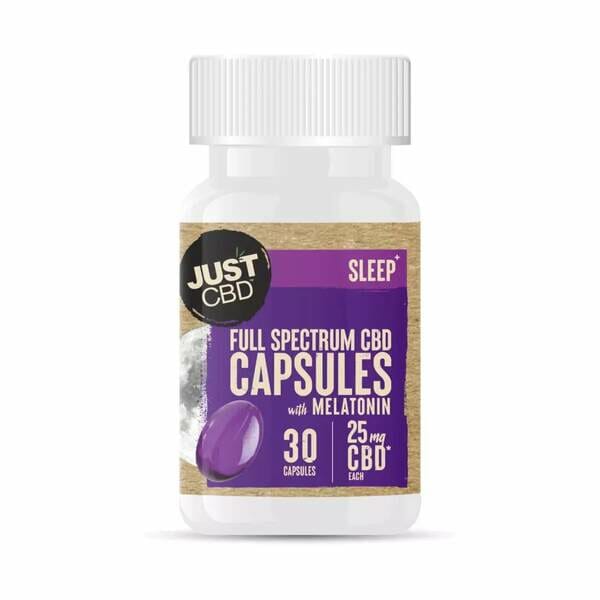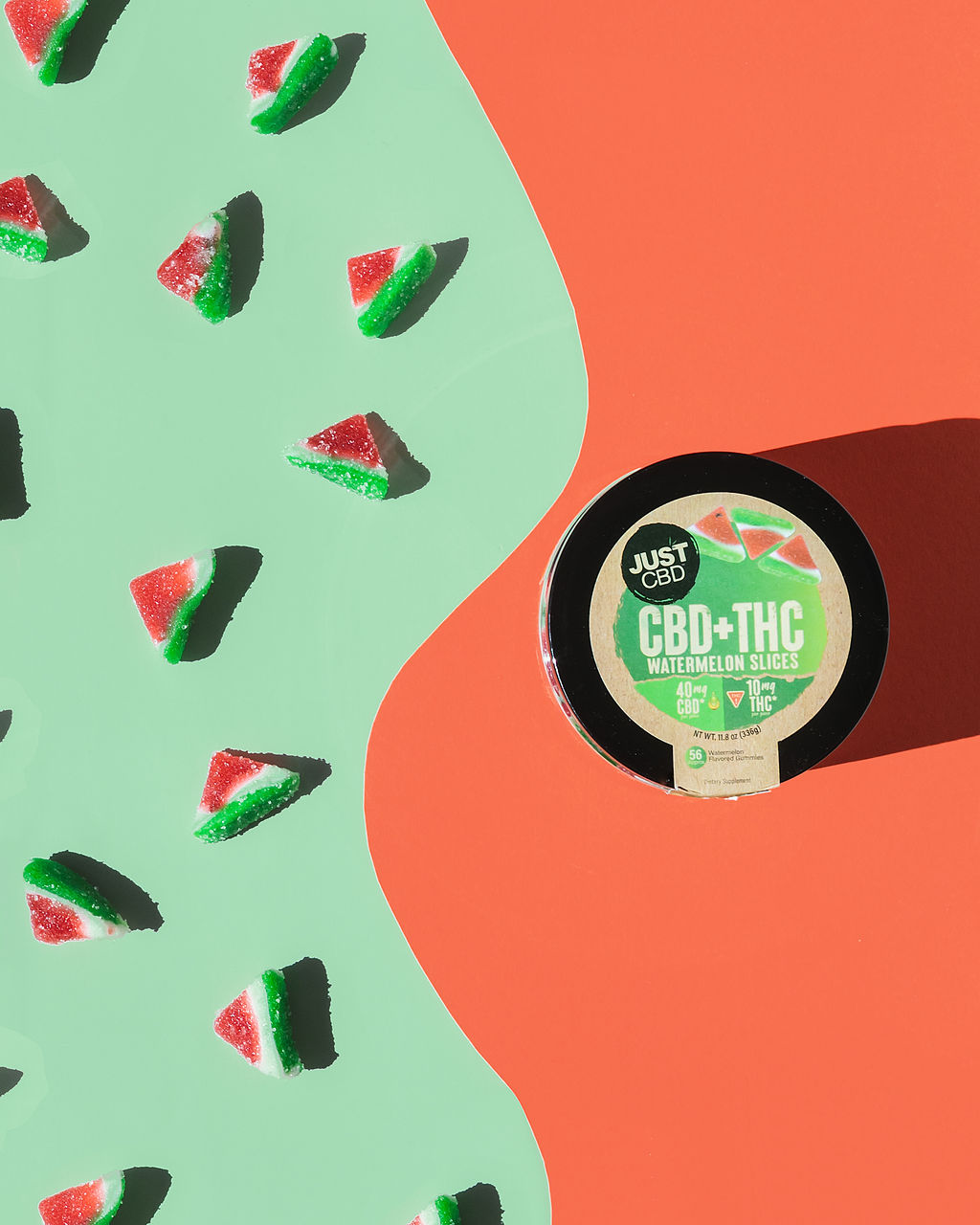In recent years, cannabidiol (CBD) has become a popular wellness trend, known for its potential therapeutic effects on both physical and mental health. Among the many different forms of CBD available on the market, CBD capsules have emerged as one of the most convenient and discreet options. For those who are looking to incorporate CBD into their daily routine without the hassle of measuring doses or dealing with the taste of oils, CBD capsules offer an easy-to-use solution. This article will explore what CBD capsules are, how they work, and how they fit into a wellness routine.
What Are CBD Capsules?
CBD capsules are simply capsules that contain a measured dose of CBD oil or CBD isolate, typically in a softgel or pill form. They are one of the most straightforward ways to take CBD, as each capsule contains a pre-measured amount of cannabidiol, which eliminates the guesswork involved with other consumption methods like tinctures or edibles.
The contents of the capsules vary depending on the manufacturer, but most CBD capsules are filled with CBD oil, which is extracted from the hemp plant. The oil contains cannabidiol, a non-psychoactive compound that interacts with the body’s endocannabinoid system (ECS) to potentially provide a variety of benefits. Some capsules may contain full-spectrum CBD oil, which also includes trace amounts of other cannabinoids, terpenes, and essential oils from the hemp plant. Others may use broad-spectrum CBD, which contains CBD and other cannabinoids but is typically free of THC, the psychoactive compound found in cannabis. There are also capsules made from CBD isolate, which is the purest form of CBD and contains no other cannabinoids or compounds.
How Do CBD Capsules Work?
CBD capsules work in much the same way as other forms of CBD, by interacting with the body’s endocannabinoid system. This system plays a crucial role in regulating several physiological processes, including mood, pain perception, appetite, and immune function. When CBD is consumed, it binds to cannabinoid receptors in the ECS, specifically the CB1 and CB2 receptors, helping to balance and optimize various functions within the body.
Because CBD capsules must pass through the digestive system before entering the bloodstream, the effects of capsules tend to take longer to kick in compared to methods like vaping or tinctures, which are absorbed more quickly. It typically takes anywhere from 30 minutes to two hours for the body to metabolize and absorb the CBD from a capsule, depending on factors like individual metabolism, food intake, and the type of capsule. However, once the CBD is absorbed, its effects can last much longer, providing sustained relief for hours.
Benefits of CBD Capsules
CBD capsules are praised for several benefits, many of which stem from their ease of use and effectiveness. Some of the most common advantages include:
- Precise Dosing: One of the primary advantages of CBD capsules is the convenience of precise dosing. Unlike oils or tinctures, where you must measure your dose, each capsule contains a fixed amount of CBD. This makes it much easier to manage your intake and track the effects on your body, ensuring that you are getting the right amount for your needs.
- Discreet and Convenient: For those who want to enjoy the potential benefits of CBD without drawing attention to themselves, capsules are a discreet option. There’s no need to worry about the smell or the possibility of others noticing what you’re taking. Capsules are portable and easy to carry, making them an ideal choice for people on the go.
- Long-Lasting Effects: Since CBD capsules are processed through the digestive system, the release of CBD is slower and more gradual, leading to longer-lasting effects. For people who want sustained relief from issues like chronic pain, anxiety, or sleep disorders, capsules may offer an ideal solution.
- Non-Intoxicating: CBD is a non-psychoactive compound, meaning it doesn’t produce a “high” like THC. This makes CBD capsules a safe and well-tolerated option for people looking to manage health concerns without the mind-altering effects associated with cannabis.
- Easy to Integrate into Daily Routine: CBD capsules are easy to take alongside other daily supplements or medications. Many people already take daily vitamins, so incorporating CBD into their routine is simple. The capsule format ensures consistency, helping to make CBD a regular part of a wellness plan.
How to Choose the Right CBD Capsules
When choosing the best CBD capsules for your needs, it’s important to consider several factors:
- CBD Dosage: Capsules typically come in different dosages, with common strengths ranging from 10mg to 50mg per capsule. Beginners often start with lower doses and gradually increase until they find their optimal amount. If you’re unsure where to start, it’s always a good idea to consult with a healthcare professional.
- Full-Spectrum vs. Isolate: As mentioned earlier, full-spectrum CBD contains all of the beneficial compounds found in the hemp plant, including other cannabinoids and terpenes. Many people prefer full-spectrum CBD due to the “entourage effect,” where the compounds work together synergistically for enhanced therapeutic benefits. However, if you want to avoid even trace amounts of THC, broad-spectrum or CBD isolate capsules may be a better choice.
- Quality and Purity: Not all CBD capsules are created equal. When selecting a product, it’s important to choose brands that prioritize quality and transparency. Look for third-party lab testing, which ensures that the capsules contain the amount of CBD promised on the label and are free from harmful contaminants like pesticides or heavy metals.
- Additional Ingredients: Some CBD capsules may include additional ingredients to enhance their effects, such as melatonin for sleep, turmeric for inflammation, or other herbal supplements. Consider your personal wellness goals and choose a product that complements your needs.
- Brand Reputation: Always choose reputable brands with positive customer reviews. Companies that are transparent about their sourcing, manufacturing processes, and testing protocols are more likely to offer a high-quality product.
How to Incorporate CBD Capsules Into Your Wellness Routine
Adding CBD capsules to your wellness routine is straightforward, but there are a few tips that can help you get the most out of your experience:
- Start Low and Go Slow: If you are new to CBD, it’s important to start with a low dose and gradually increase it over time. This will help you understand how your body responds to CBD and find the optimal dose for your needs.
- Consistency is Key: To see the full benefits of CBD, it’s essential to take your capsules consistently. CBD works best when taken regularly, so try to make it a part of your daily routine.
- Pair With Healthy Lifestyle Choices: While CBD can offer potential benefits, it’s important to remember that it’s most effective when combined with a healthy lifestyle. Eating a balanced diet, exercising regularly, managing stress, and getting enough sleep are all crucial components of overall wellness.
- Consult With a Healthcare Provider: If you’re unsure about how CBD might interact with any medications you are taking, it’s always best to consult with a healthcare provider. They can help guide you in determining the right dose and ensure there are no contraindications with your current health plan.
Conclusion
CBD capsules are an excellent way to incorporate CBD into your wellness routine, offering convenience, precise dosing, and long-lasting effects. Whether you’re looking to manage pain, reduce anxiety, improve sleep, or simply enhance your overall well-being, CBD capsules provide a discreet and effective solution. By choosing high-quality products and taking them consistently, you can experience the potential therapeutic benefits of CBD and support your health goals naturally.
Full-Spectrum CBD Gel Capsules from Just CBD

Full-Spectrum CBD Gel Capsules
I’ve tried a lot of CBD products, but I have to say that these Full-Spectrum CBD Gel Capsules from Just CBD have definitely earned a spot in my daily routine. The capsules are super easy to take—just a couple of swallows with water and I’m good to go! No fuss, no mess, which is exactly what I need in the mornings when I’m rushing out the door.
One thing I really like about these capsules is how smooth they are. I’ve tried other CBD capsules in the past that sometimes left a weird aftertaste or felt hard to swallow, but these glide down easily. Plus, I love that they’re full-spectrum, meaning they pack in all the goodness from the hemp plant, not just CBD. I’ve noticed a more relaxed vibe, less stress, and a better focus throughout my day.
The only downside? It takes a bit longer to kick in compared to, say, a CBD tincture or gummies. If I’m looking for a quick dose of calm, I usually go for something faster-acting. But, when I’m just going about my day and need a subtle, long-lasting effect, these capsules are spot on.
Full-Spectrum CBD Capsules with Melatonin

Full-Spectrum CBD Capsules with Melatonin
Now, if you’re anything like me and struggle with sleep from time to time, these Full-Spectrum CBD Capsules with Melatonin might be the answer. I’ve always been a little wary of melatonin because I’ve had the experience where it leaves me groggy the next day, but with these capsules, I’ve found the perfect balance.
The CBD combined with melatonin works wonders for my sleep. I take one about 30-60 minutes before bed, and it’s like my brain just shifts into “rest mode.” The best part? I wake up feeling refreshed, not groggy. It’s a gentle sleep aid, and I appreciate that it doesn’t knock me out completely, like some over-the-counter sleep meds can.
The downside? Sometimes, I find myself a little too relaxed for a bit after taking them, especially if I take them earlier than usual. But, it’s all part of the process of winding down for a good night’s rest. If you don’t need melatonin, though, this might be overkill, so I’d recommend sticking with the regular Full-Spectrum Capsules.
Final Thoughts
Both of these products have their perks depending on what you’re after. If you’re just looking for a relaxing, focus-enhancing CBD experience throughout the day, the Full-Spectrum CBD Gel Capsules are your go-to. But, if you struggle with sleep and want something that’ll help you wind down at night, the Full-Spectrum CBD Capsules with Melatonin are absolutely the way to go. Both are reliable and effective, and honestly, I can’t imagine my daily routine without them!
What are CBD capsules?
CBD capsules are a convenient way to incorporate CBD (cannabidiol) into your daily wellness routine. They contain a pre-measured dose of CBD, typically in a softgel or pill form, allowing for easy ingestion. These capsules can contain full-spectrum CBD, broad-spectrum CBD, or CBD isolate, depending on the product.
How do CBD capsules work?
Once consumed, CBD capsules travel through your digestive system and are absorbed into the bloodstream. From there, they interact with the body’s endocannabinoid system to help promote balance, reduce stress, and support overall wellness. The effects of CBD capsules tend to be more gradual but long-lasting compared to other methods like vaping or tinctures.
How long does it take for CBD capsules to work?
CBD capsules can take anywhere from 30 minutes to 2 hours to take effect, as they need to be processed by your digestive system first. The time it takes for you to feel the effects can vary depending on factors like your metabolism and whether you’ve eaten.
Are CBD capsules better than other CBD products?
It depends on your preferences. CBD capsules offer a discreet, easy-to-use option for those who prefer not to deal with the taste of oils or the mess of gummies. They also provide precise dosages, which some people find easier to manage compared to other CBD products.
Can I take CBD capsules every day?
Yes, CBD capsules are safe for daily use. Many people incorporate them into their morning or evening routines to help manage stress, promote focus, or support overall wellness. However, it’s a good idea to start with a lower dose and gradually increase if needed, depending on how your body responds.
Can CBD capsules help with sleep?
Some CBD capsules, especially those containing melatonin, are formulated to promote better sleep. Full-spectrum CBD combined with melatonin can help you unwind and prepare for restful sleep. If you’re sensitive to melatonin, you may want to opt for regular CBD capsules to avoid feeling overly drowsy.
Are CBD capsules safe?
CBD capsules are generally considered safe, especially when taken as directed. They are non-intoxicating and do not cause a “high” like THC. However, it’s always a good idea to consult with your healthcare provider, especially if you are pregnant, nursing, or taking other medications.
What’s the difference between full-spectrum and isolate CBD capsules?
Full-spectrum CBD capsules contain a variety of cannabinoids and terpenes found naturally in the hemp plant, including trace amounts of THC (below 0.3%). This combination can produce the “entourage effect,” where all the compounds work together for enhanced benefits. Isolate CBD capsules contain pure CBD, with no other cannabinoids or THC, making them a good option for those who want to avoid THC entirely.
How should I store my CBD capsules?
To keep your CBD capsules fresh and effective, store them in a cool, dry place, away from direct sunlight and heat. Avoid storing them in humid environments like bathrooms, as moisture can degrade the quality of the capsules over time.
Can I take too much CBD in capsule form?
While CBD is generally safe and has a low risk of side effects, it is possible to take too much. Taking an excessive amount of CBD may cause mild side effects like drowsiness, dry mouth, or upset stomach. It’s best to start with a low dose and gradually increase to find what works best for you. Always follow the dosage instructions on the product packaging.
- Bonnie Blue secretly filming huge C4 show which will reveal ‘what her life’s really like’ after 1,000 men sex stunt - June 5, 2025
- When is Mother’s Day 2025 in the UK? Origins and global celebration dates - June 5, 2025
- Who is Dave Blunts? The ghostwriter rapper behind Kanye West’s new album - June 5, 2025







